China and the US showing restraint over Taiwan issue
Recent developments over the Taiwan Strait have strained the already-tense China-US relations, with Biden repeating the commitment to support Taiwan militarily while claiming no change to the "one China" policy, and China showing comparatively measured responses. How will both sides continue to tread the line? Zaobao correspondent Edwin Ong tells us more.
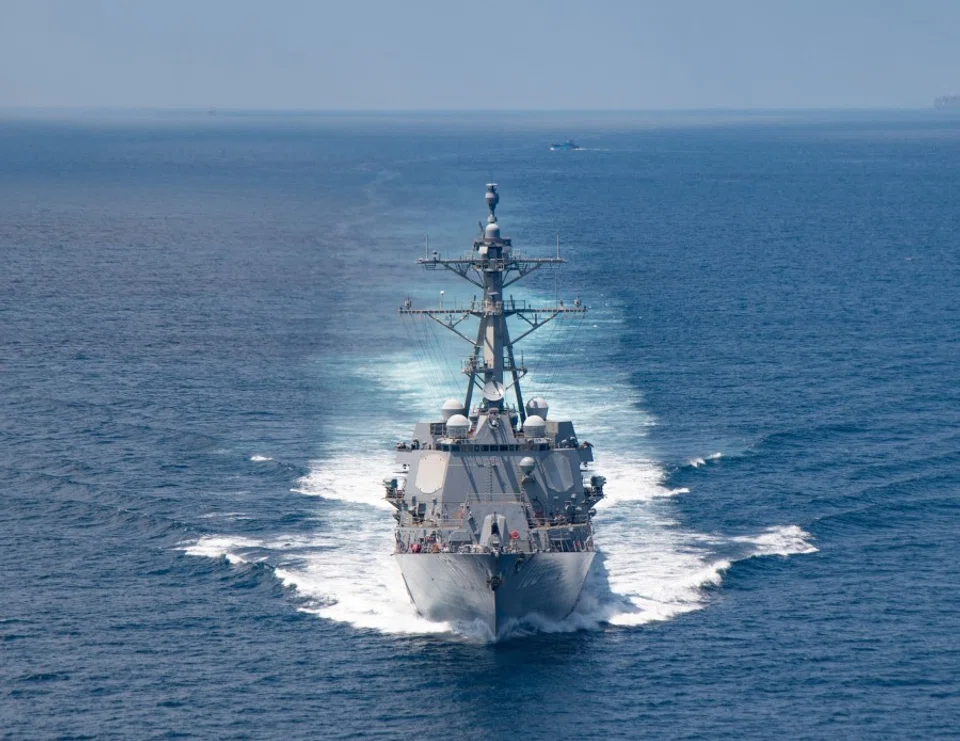
While China-US relations have seemingly been tense as the diplomatic and military tussling around the Taiwan Strait issue ramped up, both sides are allowing some latitude and showing signs of restraint amid the strong rhetoric and actions to avoid triggering direct confrontation.
Restrained responses
Following the visit of US House Speaker Nancy Pelosi to Taiwan in early August, the People's Liberation Army (PLA) held high-intensity military exercises around Taiwan, while mainland China suspended several areas of cooperation with the US. However, the Biden administration did not show much response to mainland China's retaliation and seemed to allow China to vent its unhappiness, leading some to believe that there was a prior understanding between both sides.
Likewise, the US State Department's recent approval of the largest arms sale to Taiwan since the Biden administration took office should have riled up mainland China, but instead did not draw an overreaction. As for the Taiwan Policy Act making its way through Congress, seen as a potential deal-breaker for China-US ties, it was passed in the Senate after incorporating tweaks from the White House.
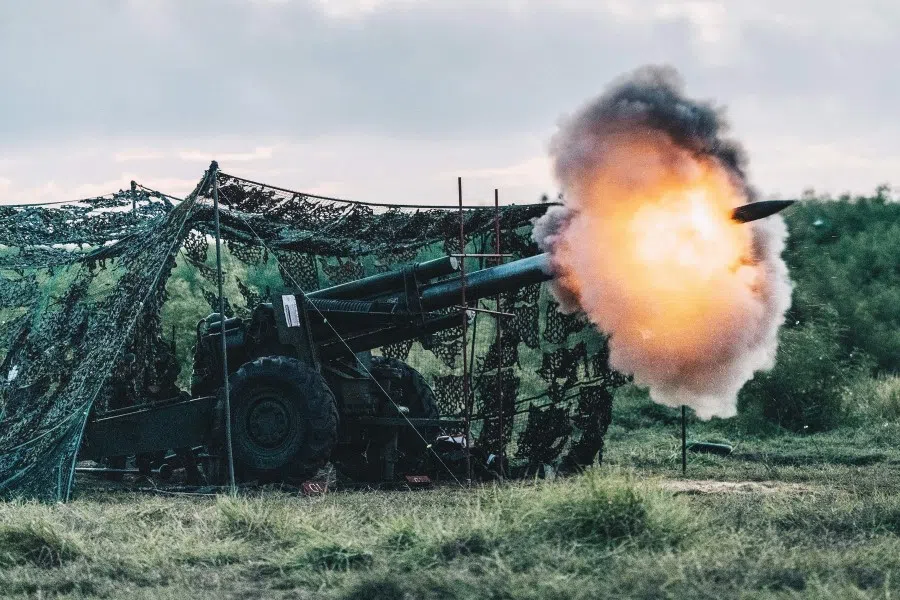
The Taiwan Policy Act mainly ramps up arms supplies to Taiwan, while avoiding raising US-Taiwan relations to the level of quasi diplomatic relations. This allows the US president to maintain both decision-making authority over the "one China" policy and manoeuvring space for "strategic ambiguity". Meanwhile, the Chinese and US diplomatic agencies can also avoid direct confrontation.
This is the fourth time since August last year that he [President Biden] has publicly said that the US army will help to defend Taiwan, and also the clearest message so far.
On 15 September, the Chinese foreign ministry lodged "solemn representations" with the US over the passing of the Taiwan Policy Act, but it still seemed to have certain expectations of the US administration, strongly urging the US to fulfil its leaders' commitments not to support Taiwan independence.
The Taiwan Affairs Office of the State Council also limited its criticisms to US Congress members and Taiwan's Democratic Progressive Party, reiterating the same call for the US government to fulfil its solemn commitment not to support Taiwan independence, and to stop playing with fire on the Taiwan issue.
Fewer certainties and more uncertainties
But with one month to go before the CCP's 20th Party Congress, US President Joe Biden played the Taiwan card again in a TV interview, and showed "strategic ambiguity 2.0". He committed to sending troops to support Taiwan while saying the "one China" policy has not changed. This is the fourth time since August last year that he has publicly said that the US Army will help to defend Taiwan, and also the clearest message so far.
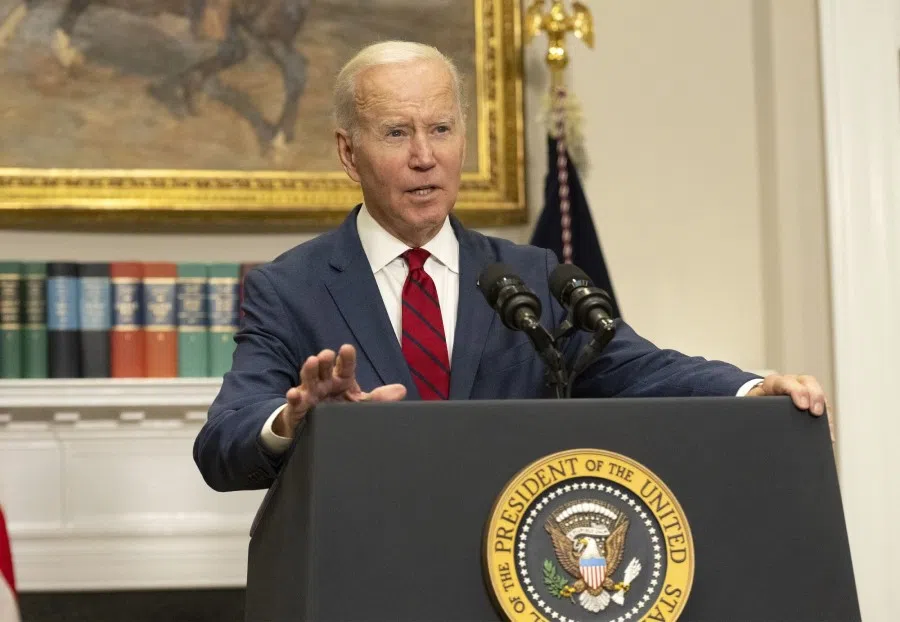
Following Biden's comments, the White House immediately reiterated that the US policy towards Taiwan has not changed. On 20 September, national security adviser Jake Sullivan said that Biden's comments have not changed the US's "one China" policy, and that the US was opposed to unilaterally changing the status quo in the Taiwan Strait, and supported peace and stability in the region.
The Hong Kong and foreign media widely reported on the matter, and a Chinese foreign ministry spokesperson lodged an official complaint about Biden's comments at a regular press briefing on 19 September. However, this part appears to have been omitted from its official release on the ministry's website. It is not immediately clear why the Chinese foreign ministry retracted its criticism of Biden's comments, but it is undoubtedly a show of restraint.
On 19 September, Chinese State Councilor and Foreign Minister Wang Yi, who is now attending the General Debate of the United Nations General Assembly in New York, responded to Biden's ambiguity with clarity. Apart from sending more goodwill to the US, he spelt out China's assessment of current China-US relations and its bottom lines.
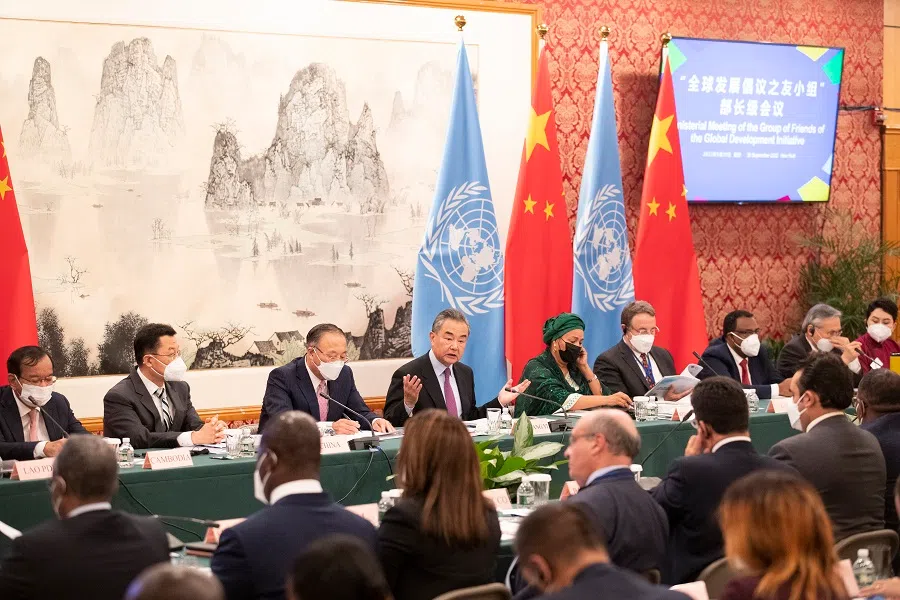
At a meeting with representatives of the National Committee on US-China Relations, the US-China Business Council and the US Chamber of Commerce, Wang said "there are fewer certainties and more uncertainties in the prospects of China-US relations". Nonetheless, China was certain about its policy towards the US, its stance on strengthening economic and trade cooperation with the US, and its readiness to engage in multilateral coordination with the US. He urged both sides to "accommodate each other's concerns through dialogue and consultation rather than confrontation and coercion".
During a separate meeting on the same day with former US Secretary of State Henry Kissinger, who was a key figure in establishing China-US diplomatic relations, Wang emphasised that the "pressing task now is to properly manage the Taiwan question" or risk it becoming "subversive" to China-US relations.
Fulfilling a peaceful reunification
"Peaceful reunification" of both sides of the Taiwan Strait is cropping up in Chinese official discourse again. At his meeting with Kissinger, Wang said that achieving peaceful reunification was China's "best wish", for which it would make "utmost efforts" to fulfil.
However, Wang also pointed out that "the more rampant 'Taiwan independence' activities are, the less likely it is to resolve the Taiwan question peacefully". Hence, he prompted the US to "earnestly return to the original meaning of the one-China principle, and unequivocally oppose and curb 'Taiwan independence' activities".
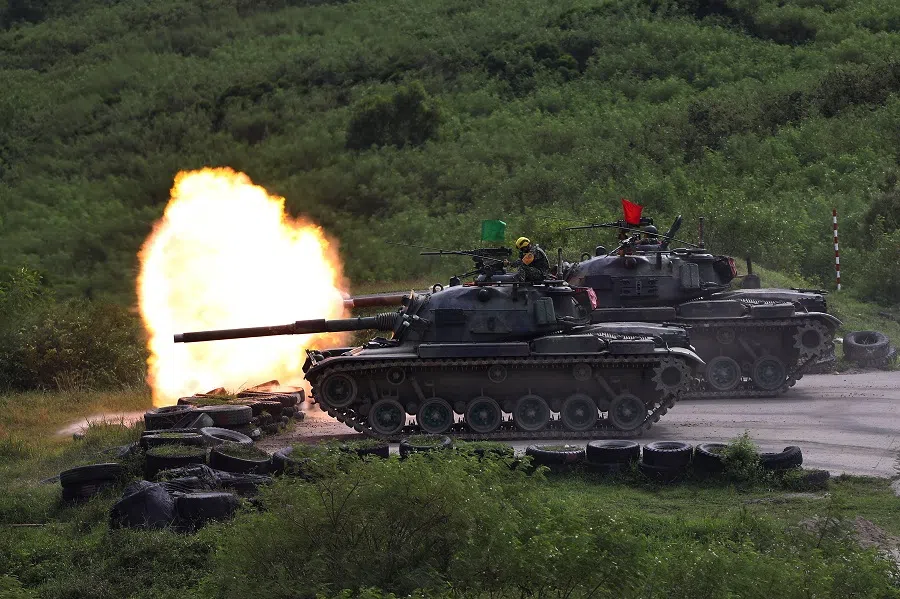
At a press conference in Beijing on 21 September, Ma Xiaoguang, spokesperson of the Taiwan Affairs Office of the State Council, also asserted that mainland China stands ready "to strive for the prospect of peaceful reunification with utmost sincerity and utmost efforts". But he also warned that if "Taiwan independence" or external forces were to provoke, coerce or even cross China's red lines, the mainland would take resolute measures.
Ma reiterated the government's official stance that China's reunification would not "harm the legitimate interests of any country, including its economic interests in Taiwan, but will only bring more development opportunities to all countries".
As the CCP's 20th Party Congress is fast approaching, Chinese officials are more concerned with internal stability and unity, and do not wish to spend too much energy on confronting the US.
Amid Biden's commitment that US forces will defend Taiwan, a US Navy warship and a Canadian frigate sailed through the Taiwan Strait on 20 September. Despite heightened tensions, the move is probably a routine transit, as the number of ships passing through the Taiwan Strait is not out of the ordinary.
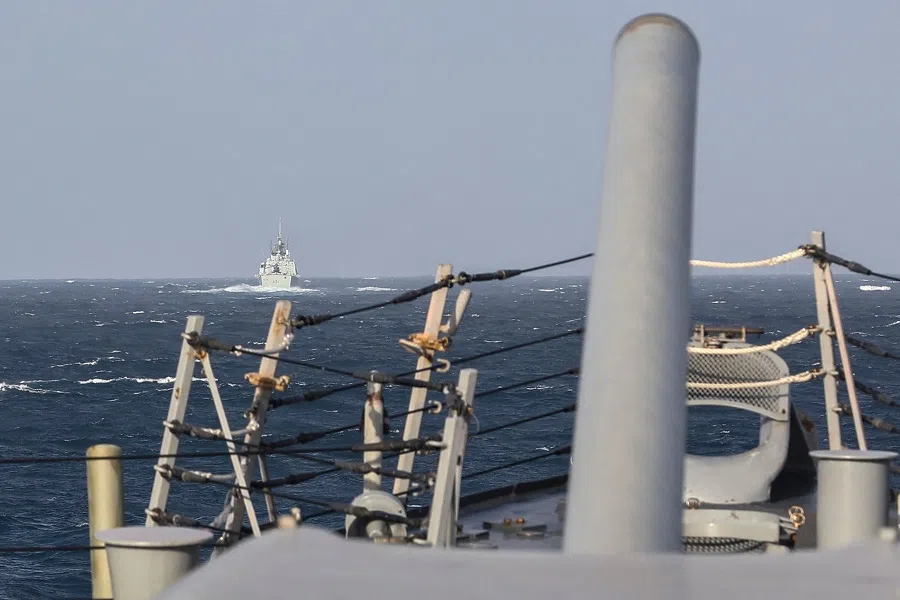
On 21 September, Senior Colonel Shi Yi, spokesperson of the PLA Eastern Theater Command, criticised the US and Canadian military for making a transit through the Taiwan Strait and for creating public hype over the matter. He said that the PLA Eastern Theater Command's naval and air forces are on high alert and are monitoring the US and Canadian warships closely. Even so, the tone of the statement was not harsher than before.
As the CCP's 20th Party Congress is fast approaching, Chinese officials are more concerned with internal stability and unity, and do not wish to spend too much energy on confronting the US. While the US has clearly taken the opportunity to antagonise China, it has also avoided pushing the limits.
For now, only time will tell if the tussling that is just short of a full-blown confrontation is due to a tacit agreement between both countries, or the result of circumstances.
Related: Effect of US politicians' frequent visits to Taiwan cannot be underestimated | Implications of Xi Jinping resuming overseas trips before 20th Party Congress | [State of our world] China's future in a politicised world | Who will have the last laugh after Pelosi's Taiwan visit? | Three big changes in China-US competition after Pelosi's Taiwan visit




![[Big read] When the Arctic opens, what happens to Singapore?](https://cassette.sphdigital.com.sg/image/thinkchina/da65edebca34645c711c55e83e9877109b3c53847ebb1305573974651df1d13a)
